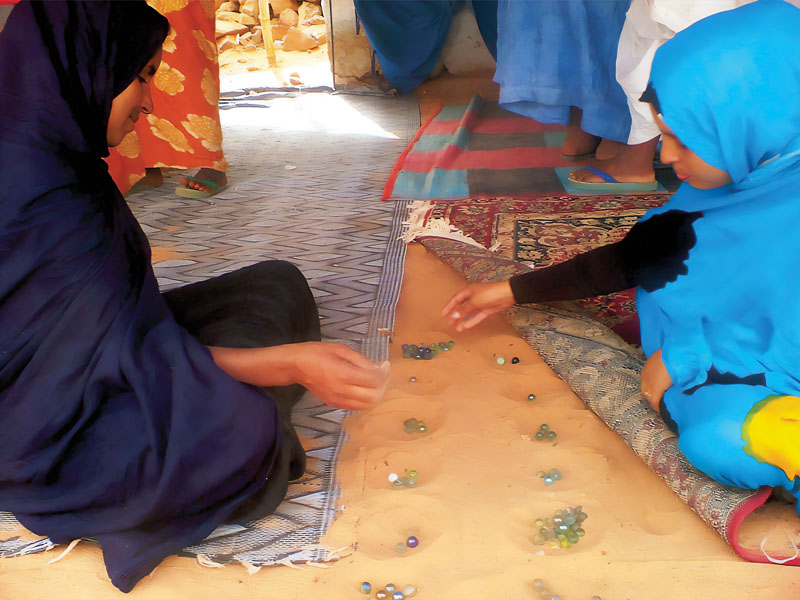Traditional children's games in Tunisia: An ethnographic and anthropological study
Issue 38

By Dr. Al Hadi Msilini, Research Professor at the Higher Institute of Childhood Frames
This study concludes that it is important to document and classify Tunisian children's games according to multiple variables, including place, time, area, age, gender, number of participants, tools, and rules. The study also involved analysing each variable individually to arrive at useful findings.
The study then categorised the games according to their most important functions. One of the most important findings is that children's traditional games are characterised by diversity and richness.
The results show that traditional games are more diverse in neighbourhoods and rural areas, and less diverse in Bedouin and mountainous areas. Although the games have many things in common, their functions vary from rural areas to cities and from south to north.
By studying and analysing the internal and external logic of the game, we can identify the most important dimensions and psychological, social and cultural implications. The study also concluded that heritage games are becoming more or less diversified based on the social environment in which they are played. The games are well known in city and country neighbourhoods, and less popular in Bedouin and mountainous areas. At the same time, the way some games are played differs between the countryside and the city, and between the south and the north, although there are often commonalities.
All the examples analysed in this study clearly show the close connection between the way that games are played and cultural characteristics of Tunisian society, as this connection is considered one of the most important elements affecting the upbringing of Tunisian children. These games are of significant social value, because they encourage Tunisian children to become involved in a group and they increase the children’s awareness of the group's values, principles, traditions and norms.
By participating in group games, a child learns how to share happiness, competitiveness and closeness with others. Due to their rules, group games play a role in shaping the child’s behaviour and making him feel responsible to the group. They also instil a respect for other people’s rights.
We studied a conventional society that is strongly associated with its cultural identity. This society emphasises the importance of the group rather than the individual, and people value belonging to a group, which makes their life decisions.
Traditional games have always been a mirror that reflects all aspects and manifestations of a society’s culture. One of the main functions of group games is to preserve the society’s culture and stability. In addition, the common features of Tunisia’s traditional games indicate that the culture is a unified one, which encourages cohesion. These traditional features are also an effective means of transmitting values such as solidarity, diversity and cultural awareness. These features should be protected, studied and developed, because they represent a part of the individual's personality that is inseparable from his cultural identity.
All the examples analysed in this study clearly illustrate the close interrelationship between the way that games are played and cultural characteristics of Tunisian society, since traditional games are one of the most important factors contributing to children’s socialisation. It follows that these games are of social value and that they generate social returns that encourage the child to become part of the group and to accept collective values, principles, traditions and social norms.
In a group game, a child needs to be engaged so he can learn to share others’ joy, rivalry and loyalty. Team games modify the child’s behaviour and make him more responsible and more observant of the rights of others.


































































